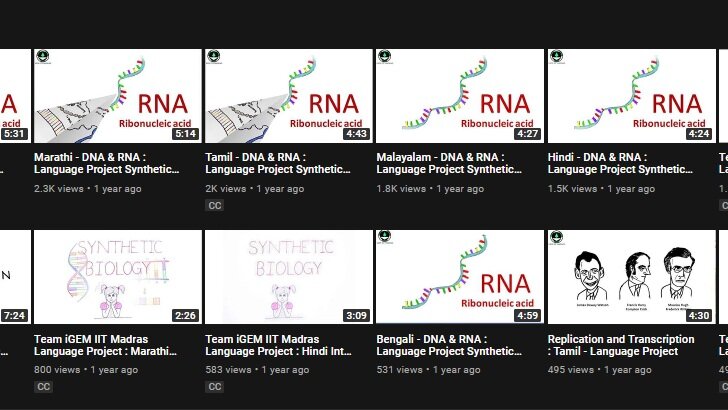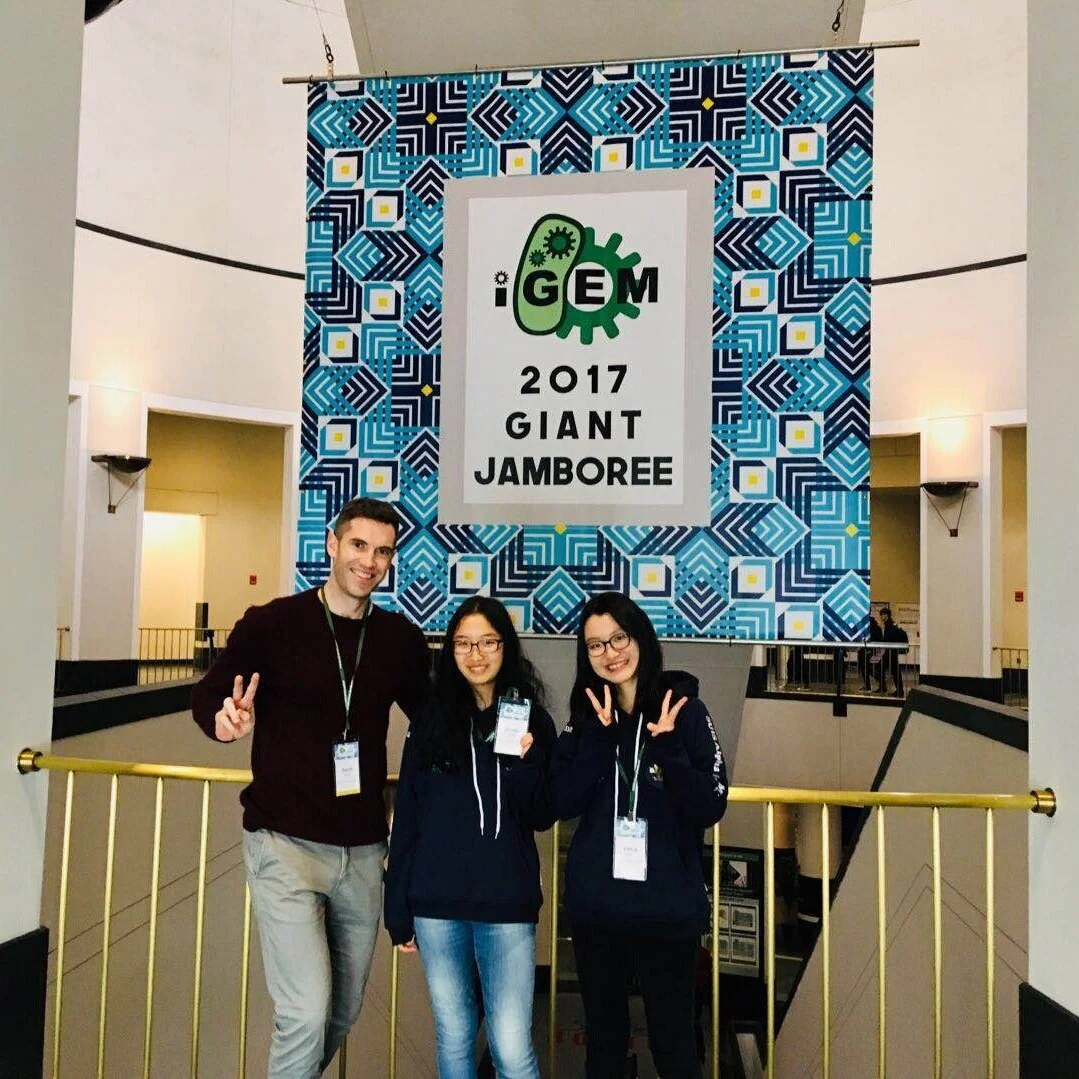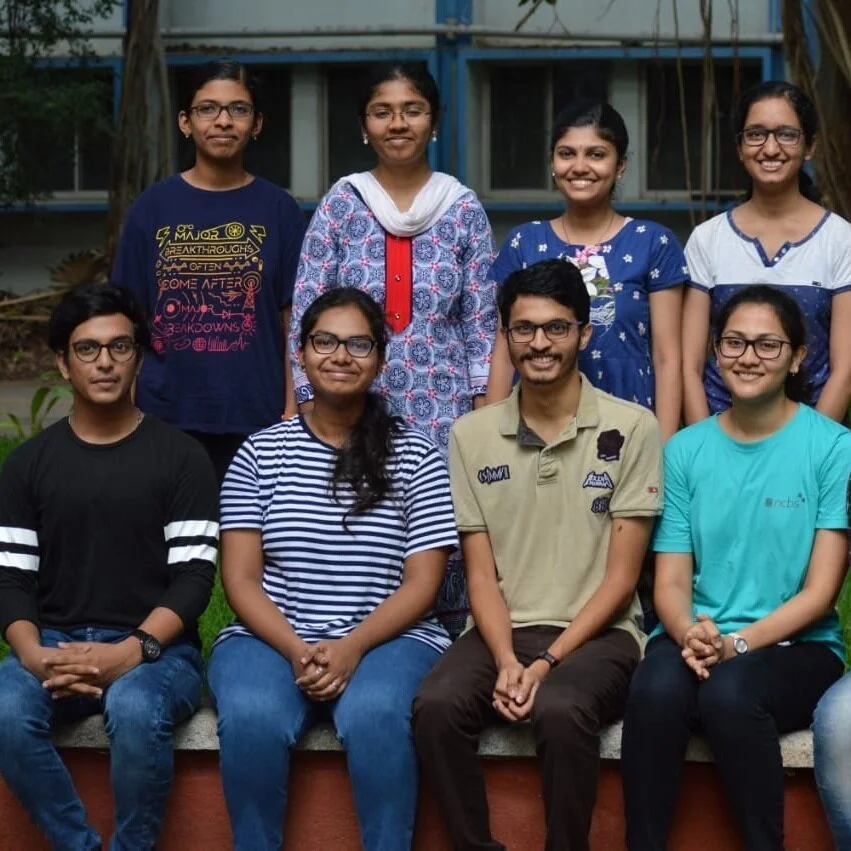Inviting the world to participate in synthetic biology
By Tessa Alexanian, Member of 2014 and 2015 iGEM Waterloo Team
Synthetic biology can change the world. By engineering biology, we can reshape the air we breathe, the fabric of our clothes, the biomes within our bodies. But who is counted as part of that “we” who reshapes? Who is invited to participate in this re-engineering?
iGEM is many things, but here’s one that matters a lot to me: iGEM is an invitation.
For many people, in many places around the world, an encounter with an iGEM team will be their first encounter with synthetic biology. The work that iGEM teams do to make synthetic biology accessible and understandable is an invitation extended: come, join us, tell us what matters to you. Let’s change the world together.
Invitations in many languages
You’re experiencing a barrier to accessibility right now. Just twenty percent of the world speaks English, but this op-ed, like the most widely-read academic journals and the entirety of the annual iGEM jamboree, is only available in English.
In the past year, 353 teams from 47 countries participated in iGEM. English is a majority or official language in only a third of those countries—and we know that English proficiency affects iGEM success. In 2014, Imperial iGEM interviewed past iGEM finalist teams and found that most of them either had members who were native English speakers or attended schools that offered classes in English.
Over the years, many iGEM teams have worked to overcome this language barrier and make synthetic biology understandable in more languages. In 2019, the iGEM IIT Madras team expanded The Language Project, a series of videos explaining basic synthetic biology concepts using colourful hand-drawn visuals. Through collaborations with other teams, they were able to release videos in 15 Indian languages and more than 30 others. You can read about their work elsewhere in this digest.
IIT Madras Language Project Youtube page overview
This kind of translation requires invention. As the IIT Madras team noted in an article for India Bioscience, “a challenge faced by many of us was the translation of a few scientific words from English to their native language, because the words didn’t exist in the regional language”.
The 2017 Georgia State team encountered similar challenges. They wanted to give a lab tour to Deaf students but had trouble finding American Sign Language (ASL) signs for synthetic biology concepts. With the help of ASL instructors and Deaf students, they recorded videos teaching signs like “competent cells”. They were awarded the Chairman’s Award, which is given each year to the team that best exemplifies iGEM values.
iGEM 2017 Chairman’s Award winner Georgia State and Ashesi Ghana
Delivered in many ways
Accessibility touches much more than language. Holly Bowman, a member of that Georgia State team, made this clear:
The words themselves don't teach you much about the concepts they describe. Now, how hard does it become to grasp these concepts if you can't hear their descriptions? Or see an illuminating diagram? Maybe the lab benches are too close together, preventing wheelchair access. There are myriad ways that science labs become inaccessible to students with disabilities. When we opened our GSU labs to students who were deaf or hard of hearing, we could not escape these problems.
Myriad forms of accessibility were considered by the 2019 University of Washington team as they developed a 200+ page synthetic biology curriculum. In addition to collaborating with other teams to translate their booklet into 16 languages, adapting activities for blind people, and designing graphics that avoided gender or racial signifiers, the team also made sure each activity was inexpensive to run.
According Ishira Parikh, the team’s public education lead, “we are in the process of editing and publishing our curriculum to provide free copies to underserved schools. We also have plans to personally provide and enact our curriculum in underserved rural communities in Washington State.” She feels these actions are connected to iGEM’s values:
Improving accessibility as an iGEM team means embracing the spirit of iGEM through collaboration and innovation.
Even if we manage to make learning about synthetic biology affordable, we still have to contend with the high costs of running experiments. iGEM teams know this well—the iGEM homepage asks if you are “Interested in starting a team in 2020?” and, right below, gives advice on how to request funding.
iGEM 2019 Team TUDelft
Sometimes right back home
The iGEM values describe how the organization is “committed to working towards a fairer and more inclusive world, where synthetic biology is a tool developed and used responsibly by ever more diverse groups of people, in many more locations, to help address problems that affect their lives.”
Often, iGEM teams have led the broader community in showing us what those values look like in practice. The 2013 Paris-Bettencourt team investigated gender in iGEM, and found that women were severely underrepresented. They also found that teams with a more even gender balance were more likely to win prizes.
iGEM 2013 team Paris-Bettencourt gender study
Matt Detell, a member of that team, shared the importance of their investigation:
People often asked what it had to do with the rest of our project. I think the answer is simple—it is about bias… Just as we use experimental controls to test for biases in our data, we need other people’s voices to tell us when we are overlooking something important.
The Paris-Bettencourt project led to the formation of the iGEM Diversity Committee. Their initiatives have included providing gender-neutral restrooms and lactation rooms at the Giant Jamboree, doing outreach to increase the diversity of judges, and other work to make iGEM more accessible for women, LGBTQ+ people, and others.
I know there is still a lot of room for iGEM to grow, and I want more people to be able to participate in this unfolding story of synthetic biology. As Holly Bowman said, “the knowledge and experience we gain from being a part of iGEM should be accessible to everyone that has an interest. By not fighting for accessibility, we hold back innovation.”
You’re reading this digest, which means that you’re a part of the iGEM community, whether you’re a student, an advisor, a volunteer, or simply an observer. That means you’re a part of holding this community accountable to our values. Perhaps these stories of iGEM teams will help you notice your own opportunities to work towards a fairer and more inclusive world. How will you invite more people into synthetic biology?











